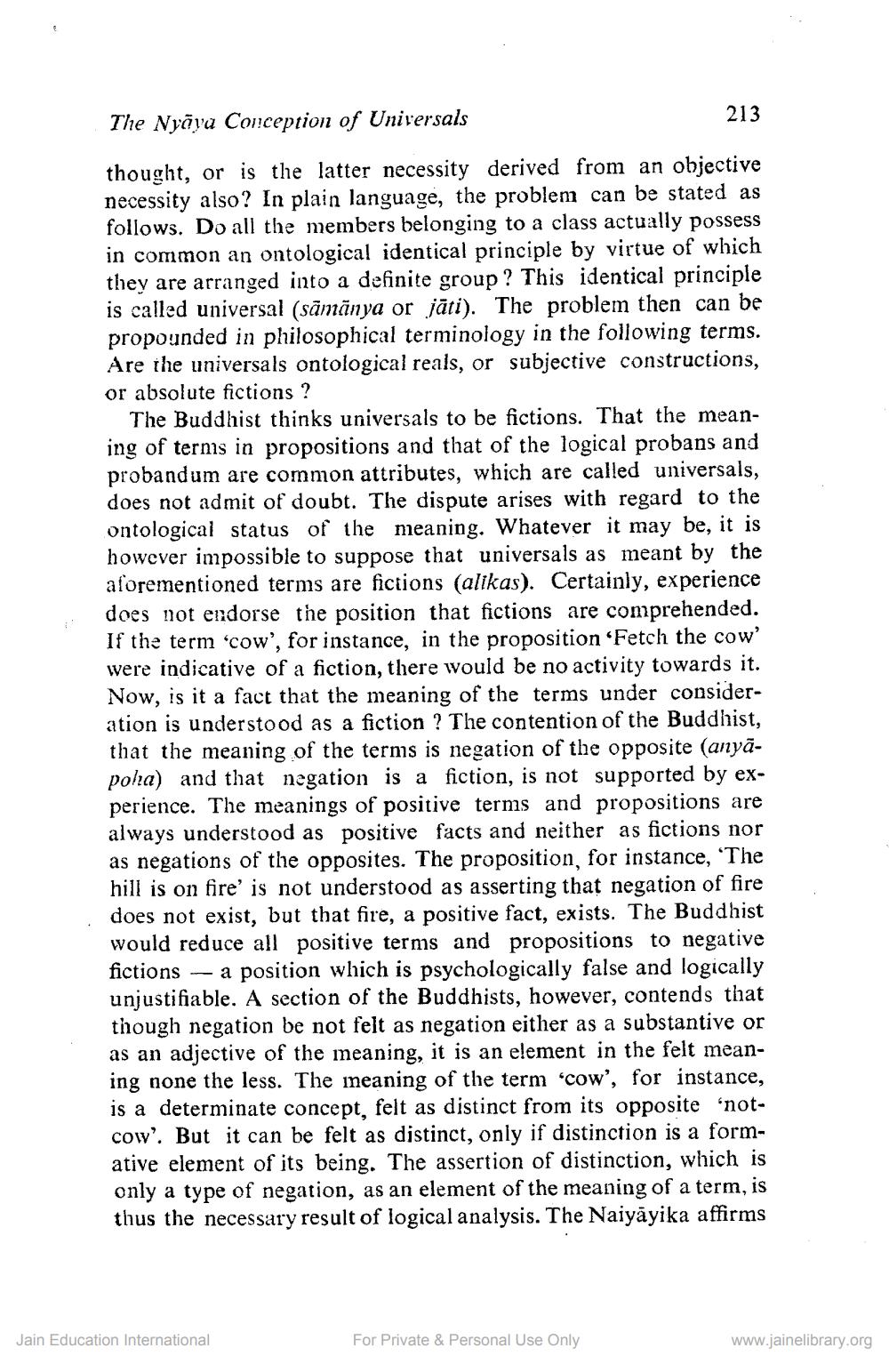________________
The Nyāva Conception of Universals
213
thought, or is the latter necessity derived from an objective necessity also? In plain language, the problem can be stated as follows. Do all the members belonging to a class actually possess in common an ontological identical principle by virtue of which they are arranged into a definite group? This identical principle is called universal (sāmänya or jāti). The problem then can be propounded in philosophical terminology in the following terms. Are the universals ontological reals, or subjective constructions, or absolute fictions ?
The Buddhist thinks universals to be fictions. That the meaning of terns in propositions and that of the logical probans and probandum are common attributes, which are called universals, does not admit of doubt. The dispute arises with regard to the ontological status of the meaning. Whatever it may be, it is however impossible to suppose that universals as meant by the aforementioned terms are fictions (alikas). Certainly, experience does not endorse the position that fictions are comprehended. If the term 'cow', for instance, in the proposition 'Fetch the cow' were indicative of a fiction, there would be no activity towards it. Now, is it a fact that the meaning of the terms under consideration is understood as a fiction ? The contention of the Buddhist, that the meaning of the terms is negation of the opposite (anyapoha) and that negation is a fiction, is not supported by experience. The meanings of positive terms and propositions are always understood as positive facts and neither as fictions nor as negations of the opposites. The proposition, for instance, 'The hill is on fire' is not understood as asserting that negation of f does not exist, but that fire, a positive fact, exists. The Buddhist would reduce all positive terms and propositions to negative fictions - a position which is psychologically false and logically unjustifiable. A section of the Buddhists, however, contends that though negation be not felt as negation either as a substantive or as an adjective of the meaning, it is an element in the felt meaning none the less. The ineaning of the term "cow', for instance, is a determinate concept, felt as distinct from its opposite 'notcow'. But it can be felt as distinct, only if distinction is a formative element of its being. The assertion of distinction, which is only a type of negation, as an element of the meaning of a term, is thus the necessary result of logical analysis. The Naiyāyika affirms
Jain Education International
For Private & Personal Use Only
www.jainelibrary.org




